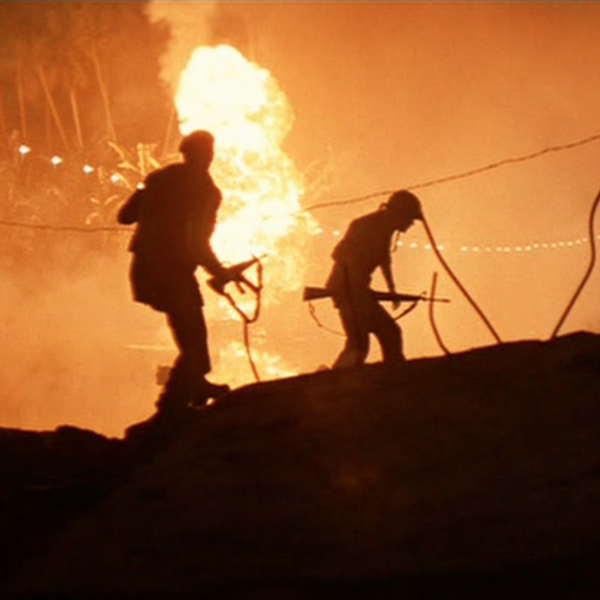Next month, theaters nationwide will be showing the film Hacksaw Ridge, which depicts the experiences of Medal of Honor recipient Desmond T. Doss during World War Two. While certain demographics are anticipated to hit the box office, many critics might dismiss the picture as being another "inspirational war film" (Unbroken, Flag of our Fathers, Red Tails), unable to grasp the significant meaning of Doss's narrative amidst the accepted receptivity of American war movies. This perceived ignorance begs the question for the believer question for themselves on whether or not devoted religious faith practice can co-exist within a militantly hostile environment.
Perhaps we must ask ourselves if we view Doss as a Christian who happens to be a American war hero, or if Doss is a American war hero who happens to be a Christian. This outlook will undoubtedly shape how we interpret the movie, as the character's claimed identity will verify or confuse the plot of the movie. Is he merely a weak figure who achieved his own version of American manhood? Or is he authentically living his faith to honor God rather his country?
I can't help but think of the film The Mission starring a bearded Robert DeNiro. Set in colonial South America, a group of Jesuits (a Catholic religious order), unsuccessfully protect an indigenous tribe from oppression from European powers. While not ignoring the assimilation techniques the friars commit (ex. cultural Christianity), their faith demands a showing of social witness that it counter-cultural to the world around them. For one priest, this means refusing to take part in the violence-even as death surrounds him-and for other brothers, it means taking a militant stance to defend those who are seriously marginalized.
It is likely that some watching Hacksaw Ridge will see the film as a "Nationalistic Christian war film", where political conservatism is comfortably married with Evangelical-minded faith. After all, seeing a patriotic white male suffer for his faith from cruel government representatives is sure to be a popular narrative among certain circles. But that is not the point of the film. Desmond's witness challenges us to think about how we utilize our armed forces, and whether we should have them in the first if they do not care for the poor and prioritize political ambitions.





















